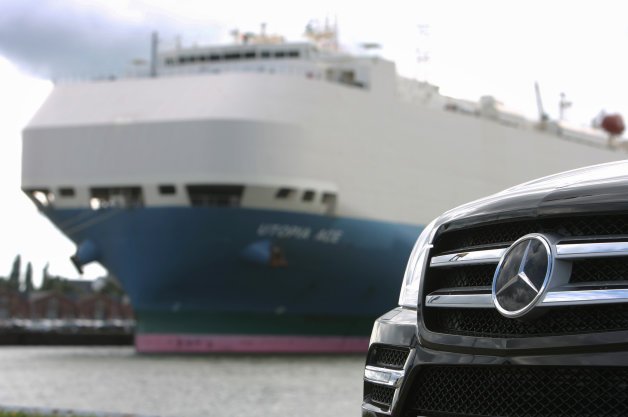How Cars Are Being Exported From USA Individually and Why Carmakers Are Upset About It

In addition to that princely sum, many customers shell out an additional $80,000 as part of what we imagine is an exceptionally profitable reservation system for new vehicle allocations.
Considering this, the increase in the number of companies exporting vehicles from US dealerships to China has become big business, and it's not difficult to understand why. Take $450K Range Rover, for example. Not including shipping, an imported model is selling for a mere $241,480, according to Automotive News. Even assuming a ridiculously exorbitant shipping price, there's still over $200,000 in savings.
These companies hire individuals to purchase the cars or SUVs from high-end dealerships via cashier's check. The individuals are then paid a delivery charge for dropping the car at the exporters. It's big business, with one company, Efans Trading, exporting 2,000 cars at a value of $80 million back in 2012. But exporters aren't exactly in the good graces of automakers.
Manufacturers have issued severe punishments, ranging from fines to loss of bonuses to nullification of franchise agreements, for dealerships that both knowingly and unknowingly deal with exporters. After all, if the manufacturer is operating in the targeted country, these exporters are essentially taking money out of their pockets. For dealers, though, the appeal is clear: cars are being purchased at cost, with relatively little hassle, making export sales a profitable gamble.
For exporters this practice is coming with increased risks, too. The US Secret Service has cracked down on known exporters, seizing cars slated for export as well as funds. Efans Trading, for example, had millions of dollars and dozens of vehicles seized, USSS Special Agent Morgan Morgan told AN.
Unsurprisingly considering the amount of money at stake, exporters have lawyered up.
"What you have is the federal government protecting foreign manufacturers' profit margins," Josh Widlansky, a Florida lawyer representing one of the groups targeted by the USSS, told AN. "You have totally noncriminal conduct that the government is criminalizing because of these private contracts between the manufacturers and the dealerships."
Related News


